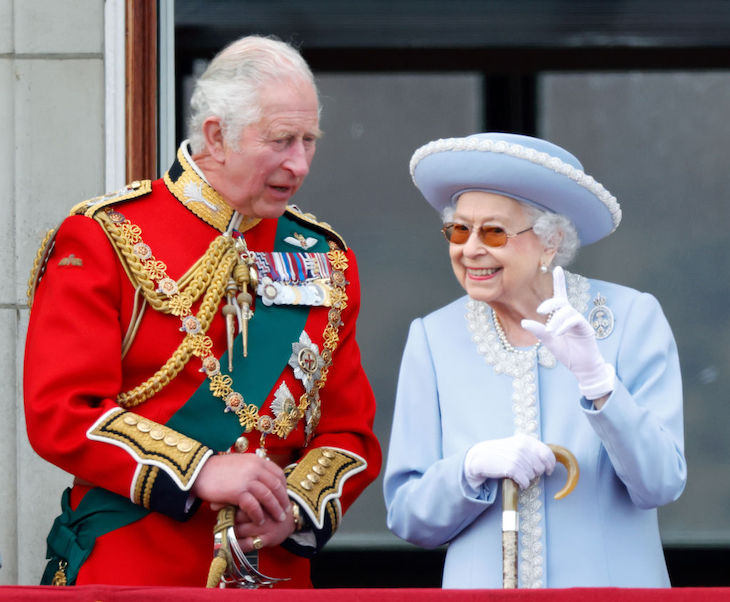Easter Monday would have been Queen Elizabeth II’s 99th birthday, a milestone that invites reflection on her extraordinary reign and the faith that defined it. An aspect of the late beloved Queen’s character that set her apart from so many other modern world leaders was her profound commitment to her faith. Her Christian belief was not just a duty but a deeply personal conviction. Her superb legacy as Defender of the Faith resonates powerfully, and it should stand as a clarion call to King Charles and his heirs to prioritise the Christian identity that so endeared his mother to her people – or risk losing the monarchy’s vital spiritual anchor.
Elizabeth II’s faith was the heartbeat of her 70-year reign. Crowned in 1953, she swore to uphold the Church of England, a vow she honoured with unwavering devotion her whole life long. Her Christmas broadcasts, especially later in life, were sermon-like, weaving biblical stories like the Good Samaritan into calls for compassion and service. She once wrote that Christ’s teachings were her guide, a sentiment that echoed in her daily life – whether worshiping at Crathie Kirk or appointing bishops who shaped Anglicanism’s course. Her faith was not performative; it was lived, as Archbishop of Canterbury Justin Welby noted, “hour by hour, day by day.” This authenticity made her a moral compass in turbulent times, earning her the affection of millions who saw her as the last truly Christian monarch.
As Defender of the Faith, Elizabeth met five popes, supported ecumenical ties, and appointed trailblazing bishops, yet never wavered from her Anglican core. Even as Britain grew more diverse, the Queen struck a delicate balance while always putting Christianity first. Her 2012 speech at Lambeth Palace framed the Church of England as a guardian of all beliefs, but her Christmas messages remained unapologetically Christian, resonating with a nation that, in 1952, was 80 per cent Christian. This approach unified her people, blending tradition with openness, and cemented her as one of Britain’s best-loved sovereigns.
King Charles, for his part, has stirred some unease on the topic of faith, among those who cherish his mother’s legacy. A committed Anglican, the King nevertheless leans toward a broader, spiritual identity, emphasising interfaith dialogue in a Britain where only 46 per cent identified as Christian in the 2021 Census for England and Wales. His coronation included Hindu, Buddhist, Muslim, and Sikh representatives, a nod to diversity his mother also embraced late in her reign. Yet his tributes to Islam – marking Ramadan and Eid with enthusiasm while Lent and Easter are perceived to receive less focus – have sparked backlash. Many lament that Christian events are diluted with mentions of other faiths, while Muslim holidays are honoured without reciprocal Christian references. Some have even accused him of undermining the Church of England and abandoning his vows to defend the Church in his role as Supreme Governor. As Melanie McDonagh wrote on Coffee House last week, Charles went out of his way in his pre-service address on Maundy Thursday to ‘pay tribute to Jews and Muslims as well as Christians, lest anyone take offence at the head of the Church of England being too exclusively Christian’. But, as Melanie says, ‘the point of Holy Thursday, as Catholics call it, is precisely to draw attention to the humility of Christ’.
Such criticism stings sharply. Elizabeth’s reign showed that a monarch’s Christian identity can unify, even in a pluralistic age. Her people, though diverse, still see Christianity as Britain’s core, a sentiment evident in the outcry over Charles’s approach. Critics warn that his focus on Islam alienates traditionalists, who feel he fails to affirm the faith he’s tasked to defend. Some have even gone so far as to suggest that if Charles cannot embrace his role as head of the established church, he should step aside. This frustration, rooted in a longing for Elizabeth’s clarity, signals a broader fear: that the monarchy risks losing its spiritual moorings in a secular tide.
Charles and his heirs, particularly the Prince of Wales, had the most marvellous leadership example in the late Queen. Her faith was a bridge – Christian at its core, yet open to others – that held Britain together. Straying too far from this risks eroding the monarchy’s relevance. The British people, as polls suggest with support for the monarchy dipping to 59 per cent in 2025, crave a monarch who reflects their heritage. Elizabeth’s unapologetic Christianity, paired with her inclusive gestures, struck that chord. Charles’s recent Ramadan messages, while well-intentioned, are seen by some as sidelining Easter’s sanctity. William, as future king, would do well to restore the balance.
The dangers for Queen Elizabeth’s heirs of diverging too far from her path are stark. A monarchy that dilutes its Christian identity may lose its constitutional anchor, as the Church of England’s role is entwined with the crown. Public trust, already fragile, could erode further if the monarchy appears adrift in “wokism,” as some monarchists lament. Elizabeth’s reign proved that faith, lived authentically, can transcend division. Her descendants must recognise that Britain, though changed, still seeks a Defender of the Faith who champions its Christian roots.







Comments